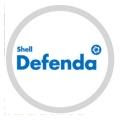 The modern corporate enterprise with specialized subsidiaries may have its benefits, but it can also cause some unintended consequences on the intellectual property front. I’ve previously reported on a Mars intra-company assignment of patents that created havoc in at least two suits. Now, oil company Shell has run into a wrinkle in a routine litigation as the consequence of its trademark holding company structure.
The modern corporate enterprise with specialized subsidiaries may have its benefits, but it can also cause some unintended consequences on the intellectual property front. I’ve previously reported on a Mars intra-company assignment of patents that created havoc in at least two suits. Now, oil company Shell has run into a wrinkle in a routine litigation as the consequence of its trademark holding company structure.
The suit started out as an ordinary dispute when a Puerto Rican franchisee, Los Frailes Service Station (“LFSS”), didn’t pay its bills. LFSS sold both Shell and another Shell brand of gasoline, Defenda (click on the word “Gasoline”). After Shell cut off delivery of gasoline, LFSS covered up the Shell marks but sold non-Shell gasoline under the Defenda mark. The Puerto Rican Shell subsidiary, Sol Puerto Rico Limited (“Sol”), sued for trademark infringement and a preliminary injunction was readily granted. Subsequently Sol moved for statutory damages, claiming that LFSS had sold counterfeit gasoline.
After Shell cut off delivery of gasoline, LFSS covered up the Shell marks but sold non-Shell gasoline under the Defenda mark. The Puerto Rican Shell subsidiary, Sol Puerto Rico Limited (“Sol”), sued for trademark infringement and a preliminary injunction was readily granted. Subsequently Sol moved for statutory damages, claiming that LFSS had sold counterfeit gasoline.
While the court found that LFSS indeed sold counterfeit gas, the court explained that statutory damages are only available to the trademark registrant, its assignee, or sometimes an exclusive licensee. But Sol didn’t own the Defenda mark; it was registered in the United States to Shell Trademark Management B.V. There was a trademark license agreement between Shell Trademark Management and Sol, but it was insufficient in two ways. First, the agreement was effective more that three years after the claim against LFSS arose. Second, the agreement was for a non-exclusive license – while the agreement prohibited Shell Trademark Management from licensing to anyone else for 10 years, the grant clause was specifically of a non-exclusive license. The court also noted that under Quabaug Rubber Co. v. Fabiano Shoe Co., Inc., 567 F.2d 154, 159 (1st Cir. 1977), a license has to exclude even the trademark owner’s use for the exclusive licensee to stand in the shoes of the registrant. Here, the agreement did not expressly prohibit Shell Trademark Management from using the mark in the territory.
Sol was therefore not entitled to statutory damages. Since ownership also affects the statutory basis for a trademark infringement claim, the court clarified that the earlier preliminary injunction was based on § 43(a) of the Lanham Act, a basis for relief also available to non-owners.
Shell Co., Ltd. v. Los Frailes Service Station, Inc., Civ. No. 03-1623 (FAB), 2008 WL 5401588 (D.P.R. Dec. 23, 2008)
© 2009 Pamela Chestek
